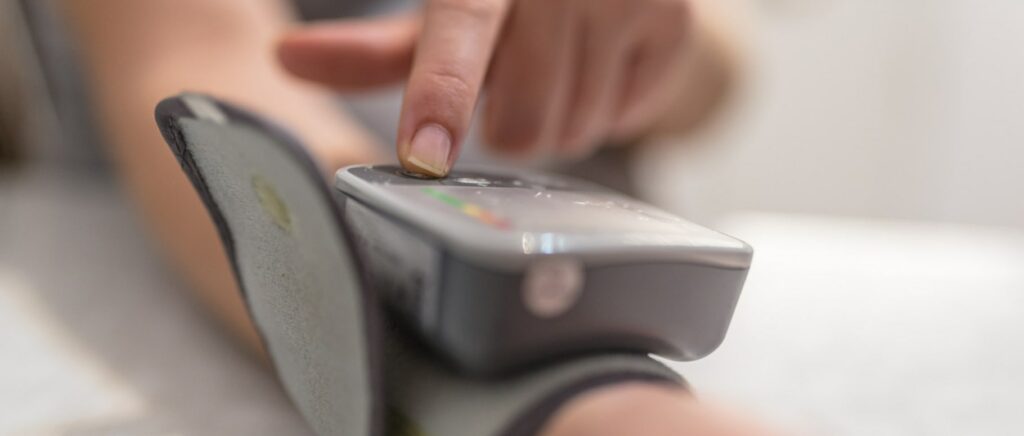
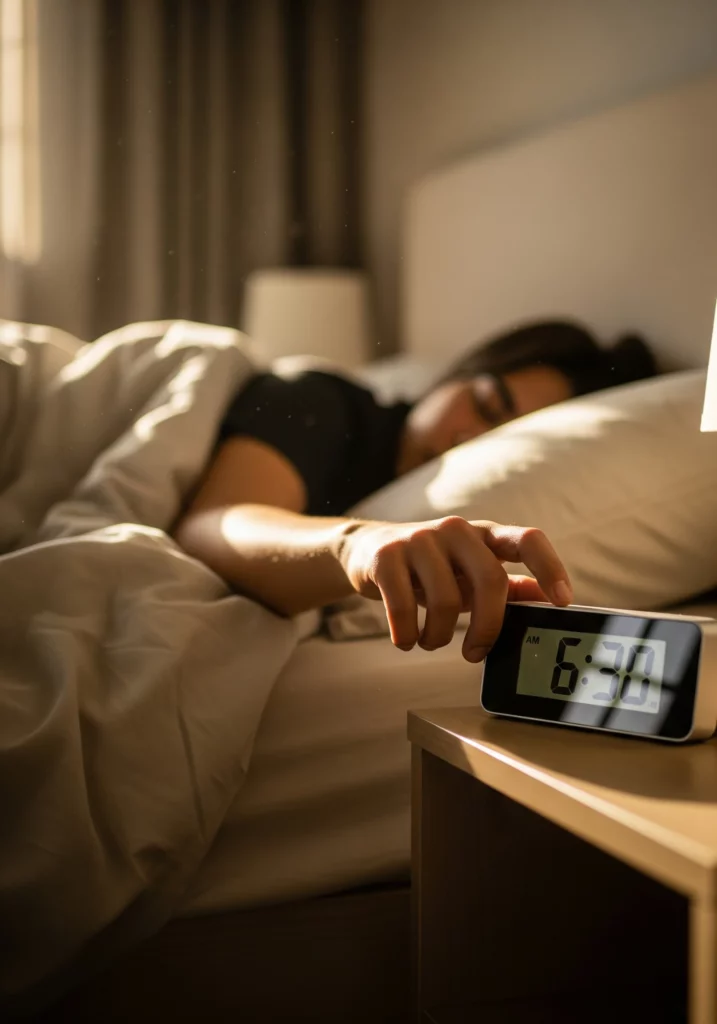
Almost every second person has pressed the “snooze” button on the alarm clock. It seems like a harmless habit that allows you to gain a few extra minutes of rest.
However, scientific data shows that delaying getting up can negatively affect the brain, hormones, and even body weight.
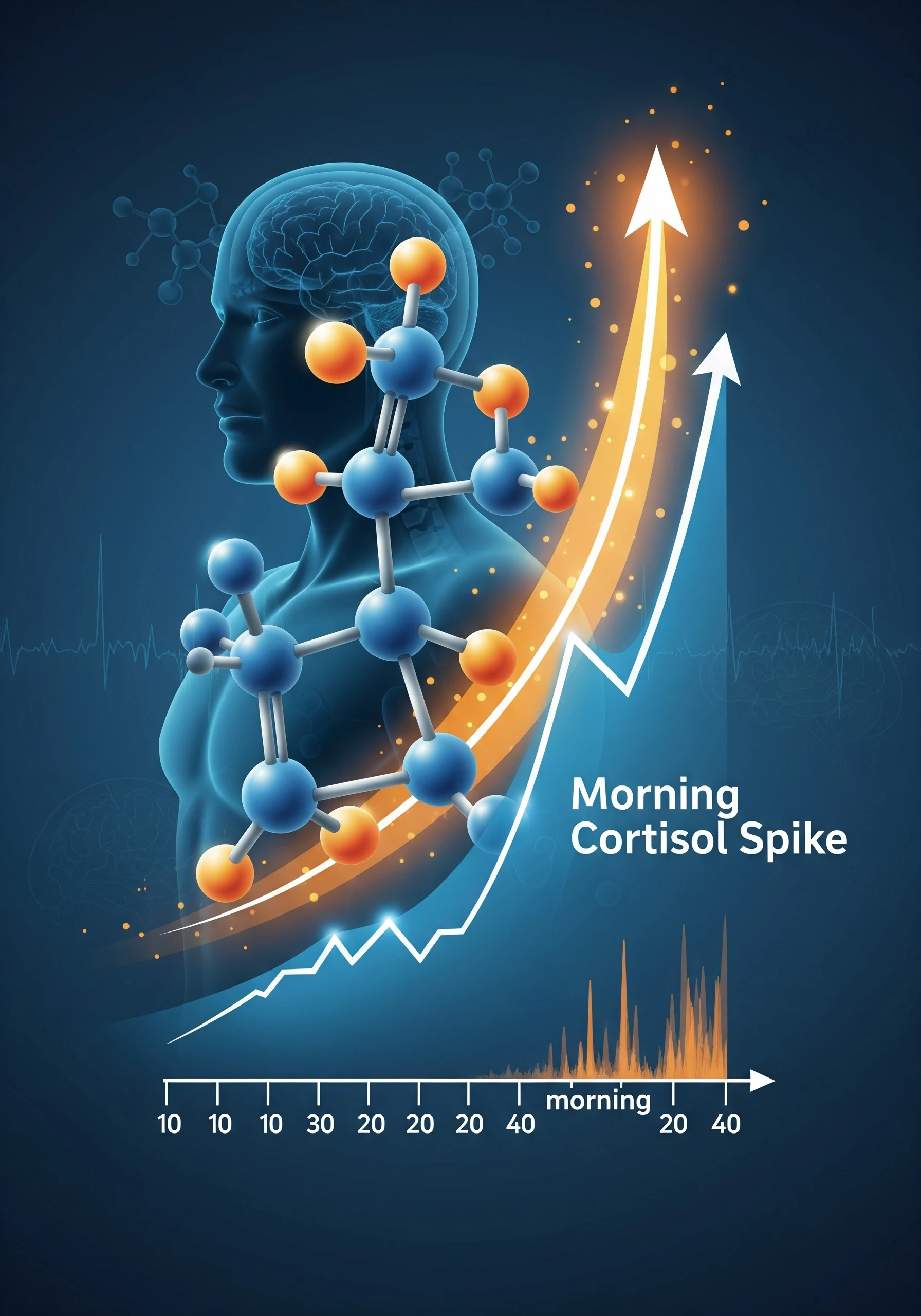
In this article, we will explore why this happens and share tips on how to wake up at the first alarm.
How Sleep Works and What Happens with “Snooze”
Sleep consists of cycles that include slow-wave sleep and REM (rapid eye movement) sleep. It is during the REM phase that we dream, and the brain actively processes information and recovers.
When an alarm interrupts sleep in this phase, there is a sharp “cut-off” of the process.
If we then press “snooze” and fall asleep again, the brain tries to start a new cycle. But it is immediately interrupted by the repeated alarm signal. This creates sleep inertia — a feeling of grogginess, heaviness in the head, and difficulty concentrating.

Stress Hormones and Their Impact
Every abrupt awakening is accompanied by a release of cortisol and adrenaline. These hormones help us wake up, but when their levels remain high daily, chronic stress develops.
Elevated cortisol affects metabolism:
-
increases appetite and cravings for fast carbohydrates;
-
reduces insulin sensitivity;
-
promotes fat accumulation, especially in the abdominal area.
Table 1. How cortisol affects the body
| Factor | Cortisol Effect | Possible Consequences |
|---|---|---|
| Appetite | Stimulates hunger | Overeating, cravings for sweets |
| Carbohydrate metabolism | Reduces insulin sensitivity | Risk of type 2 diabetes |
| Fat metabolism | Promotes fat accumulation | “Stress-type” belly |
| Sleep | Reduces sleep quality | Chronic fatigue |
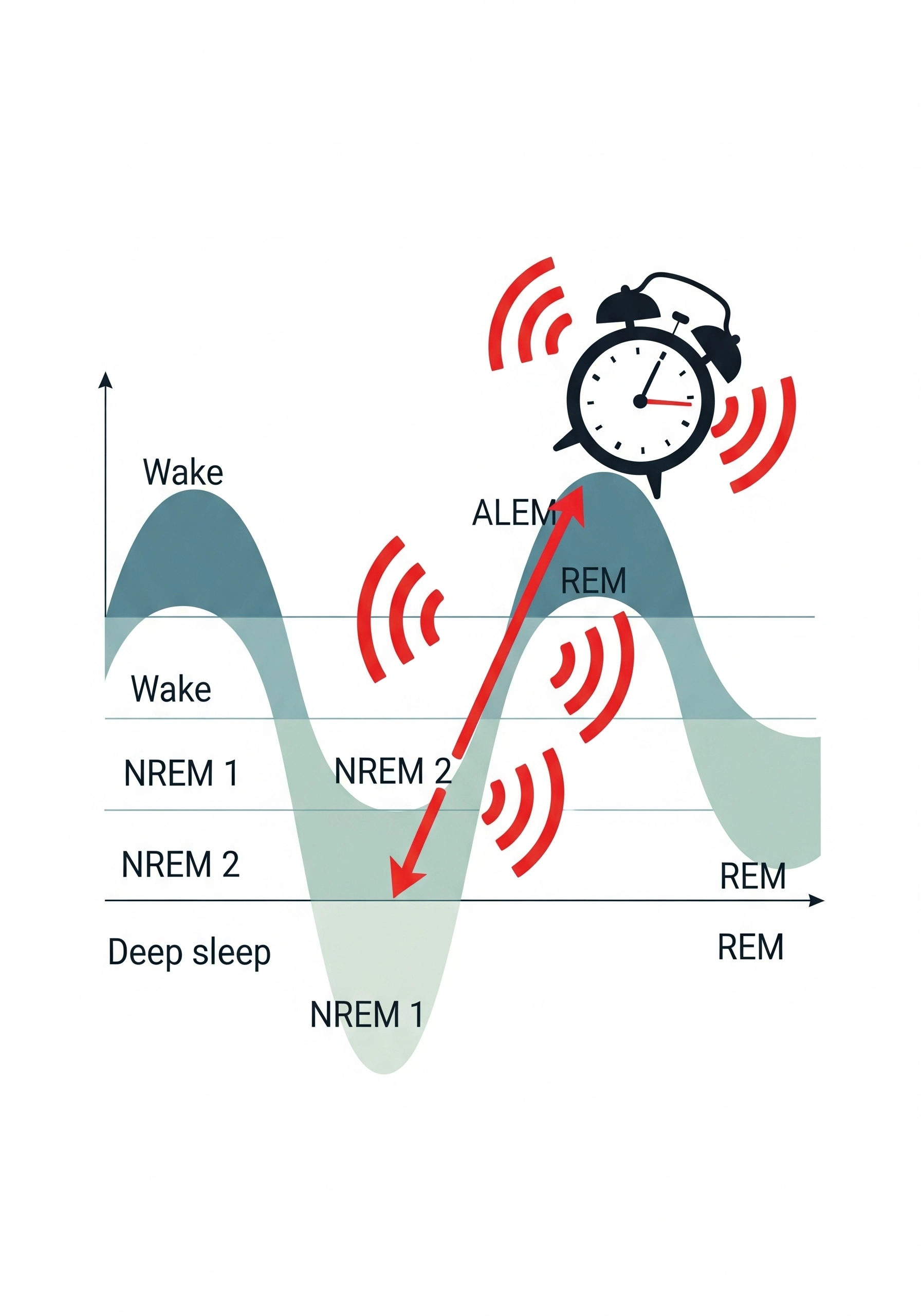
Can You Really Gain Weight from Snoozing?
The act of pressing the “snooze” button does not make a person gain weight. But this habit often indicates another problem — chronic sleep deprivation.
Combined with elevated cortisol, it can lead to weight gain, skin problems, and accelerated aging.
In addition, sleep inertia reduces productivity throughout the day. A person spends more time “waking up,” becomes less attentive, which affects work, study, and even mood.
Table 2. Consequences of hitting the snooze button
| Habit | What Happens | Consequences |
|---|---|---|
| “Snooze” occasionally | REM sleep is disrupted | Mild fatigue, drowsiness |
| “Snooze” daily | Regular cortisol release | Irritability, appetite changes, sleep problems |
| Chronic sleep deprivation | Hormone and rhythm imbalance | Risk of weight gain, skin aging |
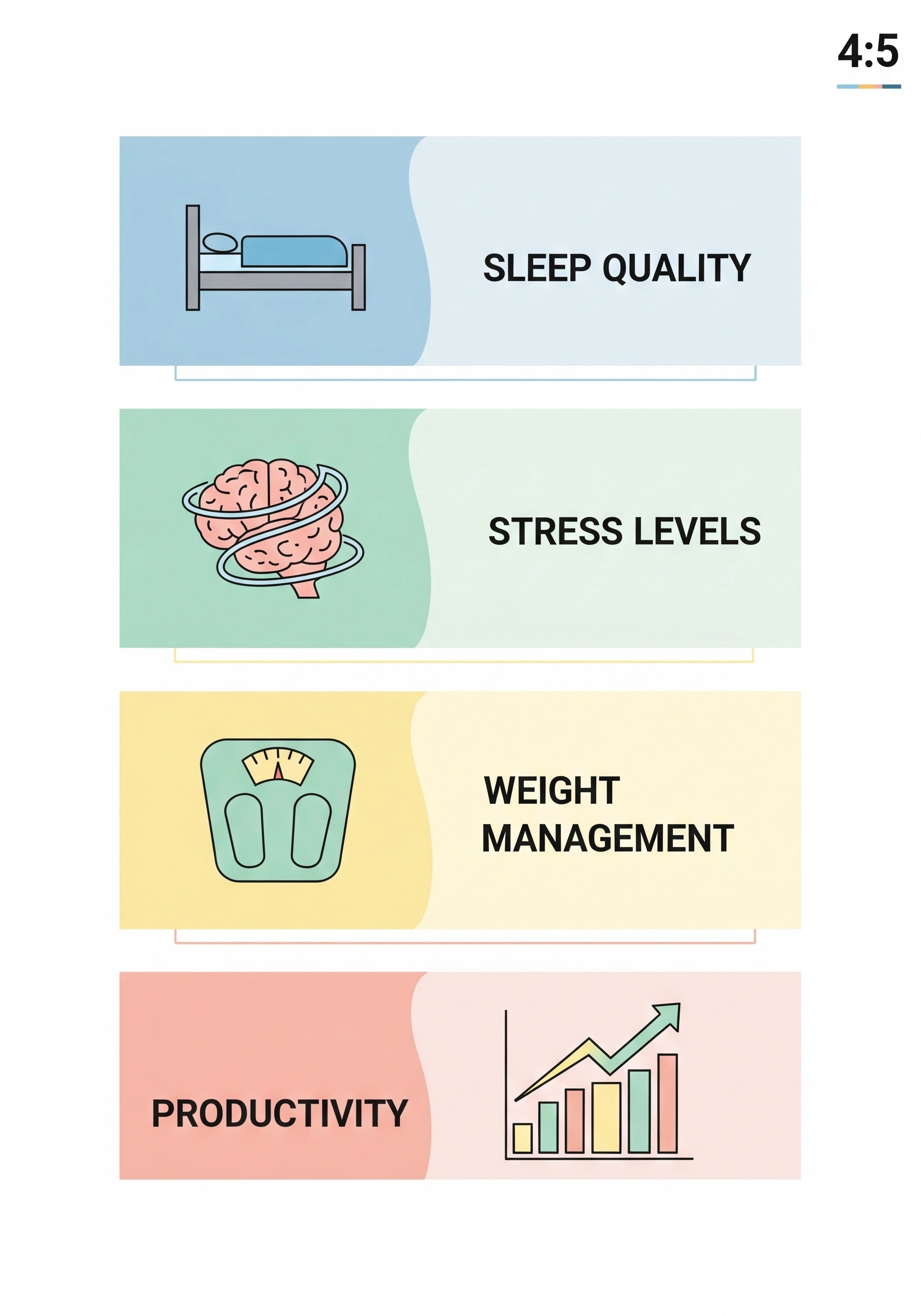
How to Wake Up Without Hitting Snooze
-
Maintain a consistent schedule: go to bed and wake up at the same time every day.
-
Place your alarm clock away from the bed so you have to get up.
-
Use a light alarm clock that simulates sunrise.
-
Create a morning ritual: a glass of water, light stretching, fresh air.
-
Ensure 7–8 hours of full sleep.

Conclusions
The habit of pressing “snooze” may seem harmless, but it disrupts sleep phases, increases stress hormone levels, reduces concentration, and indirectly affects body weight.
To avoid this, work on your sleep schedule, wake up at the first alarm, and create morning rituals that help your body and brain wake up without stress.
References
-
Troxel W.M., Buysse D.J., Hall M., Matthews K.A. (2009). Marital happiness and sleep disturbances in a multi-ethnic sample of middle-aged women. Behavioral Sleep Medicine, 7(1), 2–19. doi:10.1080/15402000802577736
-
Meerlo P., Sgoifo A., Suchecki D. (2008). Restricted and disrupted sleep: Effects on autonomic function, neuroendocrine stress systems and stress responsivity. Sleep Medicine Reviews, 12(3), 197–210. doi:10.1016/j.smrv.2007.07.007
-
Chaput J.P., Després J.P., Bouchard C., Tremblay A. (2007). Short sleep duration is associated with reduced leptin levels and increased adiposity: Results from the Quebec Family Study. Obesity, 15(1), 253–261. doi:10.1038/oby.2007.512
-
Stamatakis K.A., Punjabi N.M. (2007). Effects of sleep fragmentation on glucose metabolism in normal subjects. Chest, 132(1), 94–100. doi:10.1378/chest.07-0113
-
Beattie L., Kyle S.D., Espie C.A., Biello S.M. (2015). Social interactions, emotion, and sleep: A systematic review and research agenda. Sleep Medicine Reviews, 24, 83–100. doi:10.1016/j.smrv.2014.12.005



